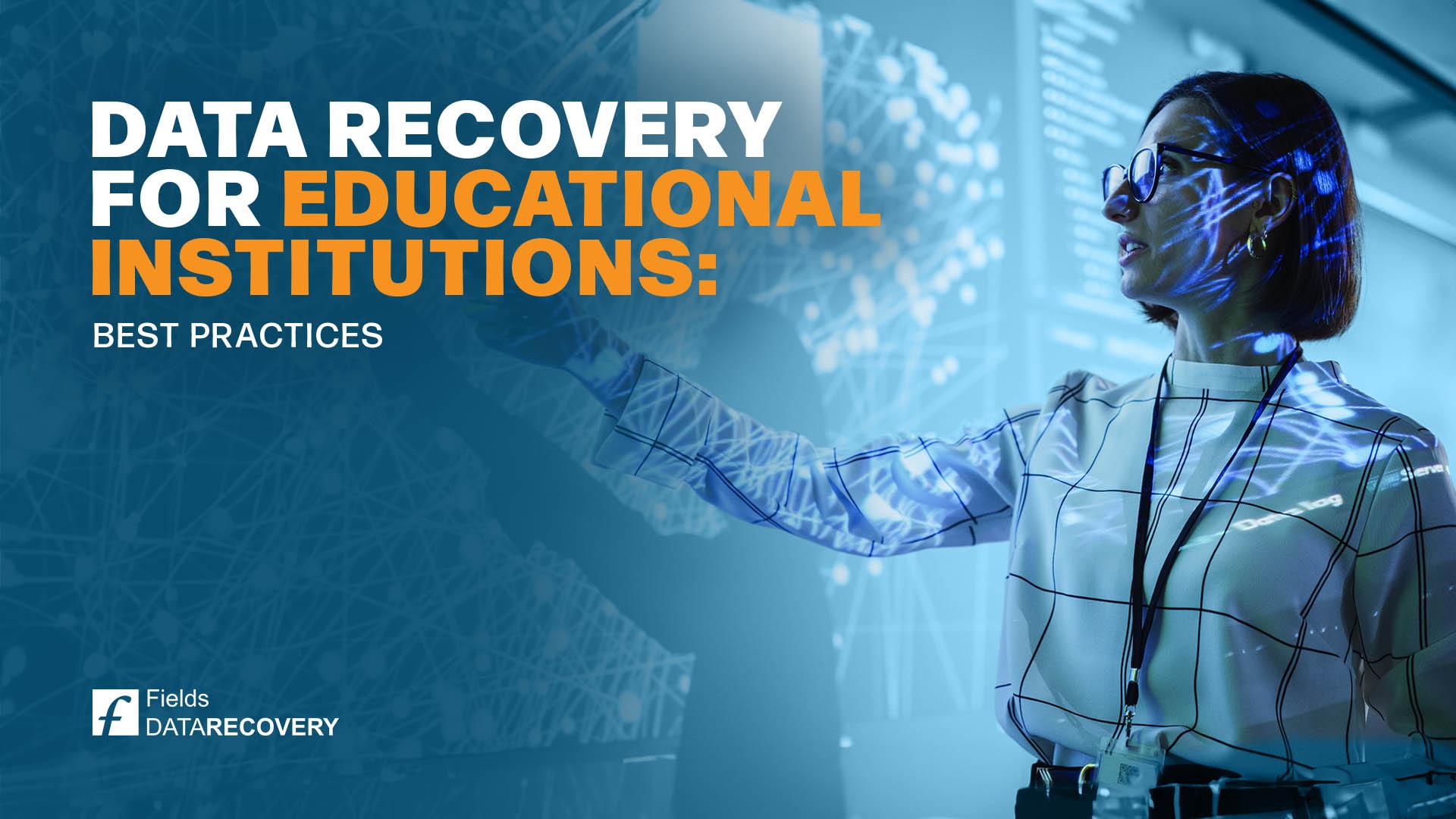Data Recovery for Educational Institutions: Best Practices

As educational institutions rely more on technology to manage their data, the risk of data loss becomes more significant. Data loss can happen due to various reasons such as hardware failure, human error, or cybersecurity threats. Losing valuable data can be catastrophic for educational institutions, causing disruption in daily operations. That's why it's crucial to implement effective data recovery practices to ensure that data can be retrieved in case of any eventuality. In this blog post, we will discuss some of the best practices for data recovery in educational institutions.
1. Backup regularly: Regular backup is one of the most effective ways to recover data in case of loss. It is essential to periodically backup critical data, such as student records, financial data, and administrative files, to ensure that it's safe in the event of data loss. Educational institutions can use cloud-based backup solutions that automatically backup data on a schedule, reducing the risk of losing valuable data.
2. Invest in reliable data recovery software: Investing in reliable data recovery software can help educational institutions recover data lost due to software corruption or accidental deletion. These software programs can scan the storage media for lost data and recover it. When selecting data recovery software, go for the one that's easy to use and offers quick data recovery.
3. Have a disaster recovery plan in place: A disaster recovery plan outlines the steps that educational institutions will take in case of a data loss incident. This plan should include details such as the critical data that needs to be recovered first, the preferred data recovery method, as well as the team responsible for executing the plan. A disaster recovery plan ensures that educational institutions can quickly respond to data loss, minimising the risk of disruption to normal operations. Its vital to also have data recovery specialists you can trust as part of your plan. Fields Data Recovery offer a no data no fee recovery service which is carried out by skilled technicians who are experts in various storage devices.
4. Provide data recovery training to staff: Educational institutions should provide data recovery training to staff members responsible for managing data. Staff members should be able to identify common data loss causes, understand different data recovery options, and know what steps to take when data loss occurs. By providing training, the educational institutions ensures that staff members are equipped with the necessary skills to handle data loss.
5. Regularly test data recovery procedures: It is essential to test data recovery procedures regularly to ensure that they're effective and reliable. A trial run can be used to identify any weaknesses in the recovery process, allowing educational institutions to improve data recovery practices. Testing should include running a disaster simulation, testing data backup processes, and testing the data recovery software.
Educational institutions must prioritise data recovery best practices to ensure that they're protected in case of data loss incidents. Regular backups, reliable data recovery software, having a disaster recovery plan in place, providing staff members with data recovery training, and regularly testing data recovery procedures are some of the best practices that educational institutions can adopt. By investing in data recovery practices, educational institutions can minimise the risk of losing valuable data, leading to disruption in daily operations.
Although it's essential to have a backup plan for your data, accidents can happen, and Fields Data Recovery is there to help you get your lost data back. With a 92.5% recovery success rate, our skilled technicians have the means and the know how to recovery your data fast and effectively. Contact us at 0800 083 7891 so we can get your data back to you ASAP.
